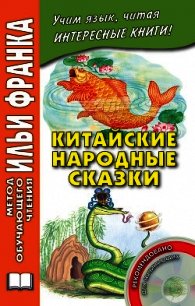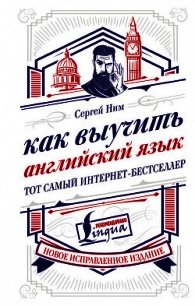Английский язык с Энтони Хоупом. Узник Зенды / Anthony Hope. The Prisoner Of Zenda - Хоуп Энтони (книги полностью txt) 📗
“Very well; have it your own way (ну, ладно: «очень хорошо», будь по-вашему; have it your own way – делай как знаешь; own – свой собственный; way – дорога, путь; способ). I am in love – infernally in love (я влюблен, безумно влюблен; infernal – адский, дьявольский; inferno – ад)!”
It was a maxim of my Uncle William’s that no man should pass through Paris without spending four-and-twenty hours there. My uncle spoke out of a ripe experience of the world, and I honoured his advice by putting up for a day and a night at “The Continental” on my way to – the Tyrol. I called on George Featherly at the Embassy, and we had a bit of dinner together at Durand’s, and afterwards dropped in to the Opera; and after that we had a little supper, and after that we called on Bertram Bertrand, a versifier of some repute and Paris correspondent to The Critic. He had a very comfortable suite of rooms, and we found some pleasant fellows smoking and talking. It struck me, however, that Bertram himself was absent and in low spirits, and when everybody except ourselves had gone, I rallied him on his moping preoccupation. He fenced with me for a while, but at last, flinging himself on a sofa, he exclaimed:
“Very well; have it your own way. I am in love – infernally in love!”
“Oh, you’ll write the better poetry,” said I, by way of consolation (о, вы будете писать еще лучшие стихи, – сказал я в качестве утешения; by way of – в виде, в качестве, ради).
He ruffled his hair with his hand and smoked furiously (он взъерошил волосы рукой и яростно закурил; to ruffle – нарушать спокойствие; ерошить /волосы/). George Featherly, standing with his back to the mantelpiece, smiled unkindly (Джордж Фэзерли, стоящий спиной к каминной полке, недобро улыбнулся).
“If it’s the old affair (если это тот старый случай; affair – дело; роман, любовная связь),” said he, “you may as well throw it up, Bert (можешь забыть об этом, Берт; as well – также, тоже; to throw up – подбрасывать; бросать, отказываться /от чего-л./). She’s leaving Paris tomorrow (она завтра уезжает из Парижа; to leave – оставлять, покидать; уезжать).”
“I know that,” snapped Bertram (я знаю об этом, – бросил Бертрам; to snap – хватать; разговаривать резко, отрывисто).
“Not that it would make any difference if she stayed (не думаю, что, если бы она осталась, это что-то бы изменило; not that – не то, чтобы; to make difference – проводить различие; менять дело),” pursued the relentless George (настаивал безжалостный Джордж; to pursue – преследовать; продолжать /занятие, обсуждение и т. п./). “She flies higher than the paper trade, my boy (она – птица очень высокого полета: «летает выше писательского ремесла», мой мальчик; to fly – летать; to fly high – высоко заноситься, быть честолюбивым; paper – бумага; газета; trade – занятие, ремесло, профессия; торговля)!”
“Hang her!” said Bertram (да черт с ней: «повесить ее»! – сказал Бертрам).
“It would make it more interesting for me,” I ventured to observe (мне было бы интереснее, – отважился заметить я), “if I knew who you were talking about (если бы я знал, о ком вы говорите).”
“Antoinette Mauban,” said George (об Антуанетте Мобан).
“De Mauban,” growled Bertram (де Мобан, – проворчал Бертрам; to growl – рычать; ворчать, жаловаться).
“Oho!” said I, passing by the question of the ‘de’ (ого! – воскликнул я, оставив без внимания /приставку/ «де»; to pass by – проходить мимо; пропускать, не обращать внимания; question – вопрос). “You don’t mean to say, Bert (не хотите же вы сказать, Берт; to mean – намереваться, иметь в виду) —?”
“Can’t you let me alone (вы /что/, не можете оставить меня в покое; to let alone – оставлять в покое; to let – позволять, разрешать; оставлять, не трогать; alone – один, сам)?”
“Where’s she going to (куда же она едет)?” I asked, for the lady was something of a celebrity (спросил я, поскольку эта дама была довольно известна: «что-то /вроде/ знаменитости»).
“Oh, you’ll write the better poetry,” said I, by way of consolation.
He ruffled his hair with his hand and smoked furiously. George Featherly, standing with his back to the mantelpiece, smiled unkindly.
“If it’s the old affair,” said he, “you may as well throw it up, Bert. She’s leaving Paris tomorrow.”
“I know that,” snapped Bertram.
“Not that it would make any difference if she stayed,” pursued the relentless George. “She flies higher than the paper trade, my boy!”
“Hang her!” said Bertram.
“It would make it more interesting for me,” I ventured to observe, “if I knew who you were talking about.”
“Antoinette Mauban,” said George.
“De Mauban,” growled Bertram.
“Oho!” said I, passing by the question of the ‘de’. “You don’t mean to say, Bert —?”
“Can’t you let me alone?”
“Where’s she going to?” I asked, for the lady was something of a celebrity.
George jingled his money (Джордж позвенел монетами: «деньгами»), smiled cruelly at poor Bertram, and answered pleasantly (жестоко улыбнулся бедняге Бертраму и весело ответил; pleasantly – любезно; весело, приятно):
“Nobody knows (никто не знает). By the way, Bert, I met a great man at her house the other night (кстати, Берт, как-то вечером я встретил в ее доме очень интересного человека; great – большой, громадный; значительный, выдающийся; the other day – на днях, недавно; other – другой; night – ночь; вечер) – at least, about a month ago (по крайней мере, примерно с месяц назад). Did you ever meet him – the Duke of Strelsau (ты когда-нибудь встречался с ним – с герцогом Стрелсо)?”
“Yes, I did,” growled Bertram (да, встречался, – буркнул Бертрам).
“An extremely accomplished man, I thought him (в высшей степени воспитанный человек, как мне показалось; extremely – крайне, чрезвычайно; accomplished – совершенный, завершенный; воспитанный, культурный; to think – думать; понимать, представлять себе).”
It was not hard to see that George’s references to the duke (было нетрудно заметить, что упоминание Джорджа о герцоге; reference – ссылка /на кого-л., что-л./; упоминание) were intended to aggravate poor Bertram’s sufferings (имело намерение усугубить страдания бедняги Бертрама; to intend – намереваться), so that I drew the inference (так что я сделал вывод; to draw – тащить волочить; выводить /заключение/) that the duke had distinguished Madame de Mauban by his attentions (что герцог отметил госпожу де Мобан своим вниманием; to distinguish – отличать, различать; отмечать, выделять). She was a widow, rich, handsome (она была вдовой – богатой, красивой), and, according to repute, ambitious (и, согласно общему мнению, честолюбивой). It was quite possible that she, as George put it (было вполне вероятно, что она, как выразился Джордж; to put – класть; излагать, формулировать), was flying as high as a personage (была столь же высокого полета, как и /упомянутый/ герцог; personage – выдающаяся личность; особа, лицо; персонаж) who was everything he could be (который был всем тем, кем мог быть), short of enjoying strictly royal rank (разве только не обладал королевским званием; short of – за исключением, кроме; to enjoy – получать удовольствие; пользоваться, обладать; strictly – строго, внимательно; точно, определенно): for the duke was the son of the late King of Ruritania (поскольку герцог являлся сыном умершего короля Руритании; late – поздний; недавний; умерший) by a second and morganatic marriage (от второго и морганатического брака), and half-brother to the new King (и сводным братом новому королю; half-brother – брат по одному из родителей).




